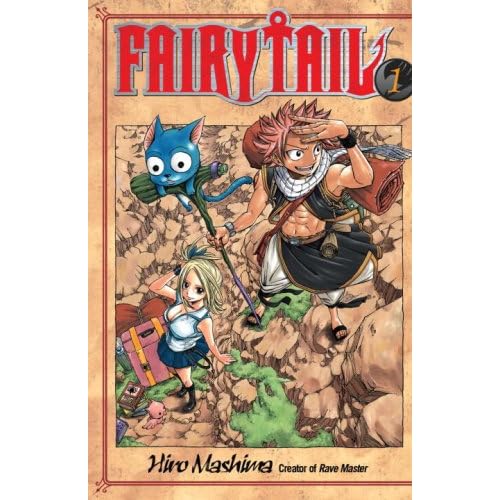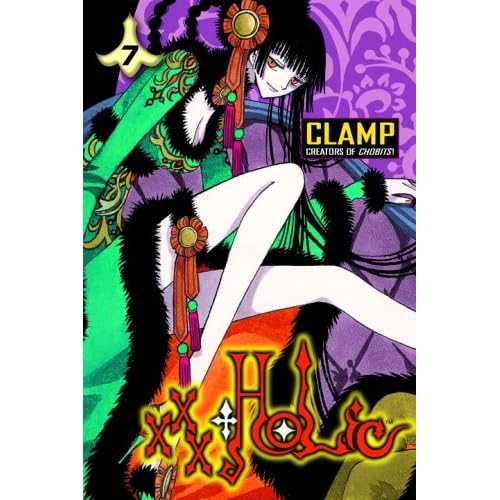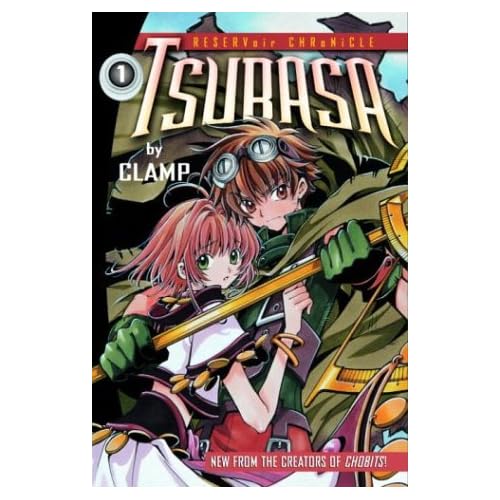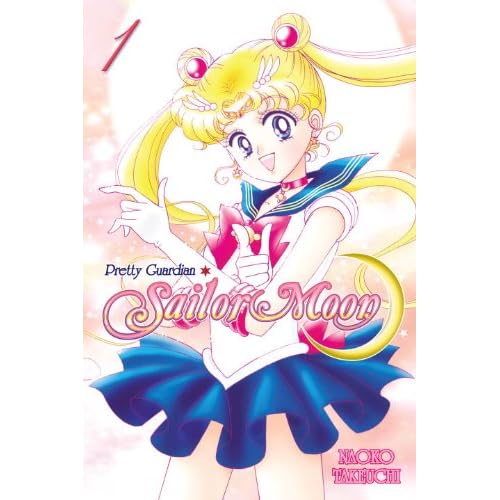Manga Interview - Fairy Tail Translator, William Flanagan
Recently I had the absolute delight and pleasure in speaking with an incredibly prolific manga translator, William Flanagan. The translator of the Eisner nominated A Bride's Story, Clamp's Tsubasa Reservoir Chronicle, xxxHolic and my personal favourite series Fairy Tail among others. Without a doubt a prolific, if not legendary translator, Mr. Flanagan fills us in on what it takes to become a top quality translator and the step by step process of manga translation.
So without further ado, follow on after the jump for what is without a doubt our most comprehensive interview to date!
Ryan: We've had a chat plenty of times on Twitter but this is our first proper talk, thanks for speaking with me.
William: Thanks for the opportunity! I hope I wind up saying something interesting.
Followers of your Twitter feed and long time manga fans may know you as the English translator for the beautiful A Bride's Story, Tsubasa Reservoir Chronicle, xxxHolic and one of my favourites Fairy Tail. What we generally don't know, is how you came to be where you are now, a prolific Japanese to English translator. Can you fill us in?
The only way to become prolific is to try to make as good a professional reputation among potential clients for yourself as you can and hope they come back to you after you've actually delivered a manuscript. Every translator has to go through stages of development, and most of the time it's done either before a person goes professional (preferably) or after. It's done by doing lots of translations and seeing how you and others react to them. I got in pretty much on the ground floor of the anime/manga industry in 1991. The anime industry as we know it now -- in other words the industry that is directed at anime fans, started a couple of years earlier around 1989 for anime and for manga around 1987, so there weren't that many dedicated translators in the industry. Most were people in other translation industries who enjoyed anime and manga and moonlighted in the manga/anime industry. In my case, I probably started a little earlier than I should have, but I got a lot of on-the-job training. With subtitles (which I did with a few partners in a company called Studio Nemo), you can see almost immediately whether a translation "works" or not. That was a great learning experience. With manga, you finish your script, send it off, and you don't see whether it "worked" or not until it's published when everyone else can see what didn't work right along with you. Fortunately I was doing both, so I could pull what I learned doing subtitles over to my manga scripts.
Another thing that really helped me in my early years -- mid-'90s -- was working with a Japanese partner sitting side-by-side and doing translations. When you 're just starting out you're pretty much guessing all the time as to whether you've got the Japanese meaning and nuance correct, but when you work with a partner, you don't have to guess. Your partner can stomp on the mistaken translations almost immediately. So later, with that experience, I got a sense of what Japanese I actually knew and what I was guessing at. And when I was guessing, I could mark it and ask someone who knows the language better than I do (native speakers) whether my guess is right or not.
But the main way I became "prolific" is through a completely unfair method. I became an editor in the industry, made a lot of friends, and later, some of those friends became my bosses. As a freelance translator, your editor is your boss, and if they know you and trust you, they're more likely to go back to you when they have a new manga title they want to have translated. Freelancers don't have as easy a time making friends of the editors, so I had a real and unfair advantage over them in that way. Of course there may be people I know and worked with as an editor who *don't* use me because they know me... If that's the case, then they're nice enough to not tell. (laughs)
According to my eternally simplistic ape-like brain, I see translation as a hybrid between story telling and a problem solving exercise. Not only do you have to translate the words but sometimes jokes, proverbs and anecdotes which may make absolutely no sense when translated into English. How do you get around this?
It isn't really a hybrid. It's actually two completely different jobs that are packaged into one. The first job is called base translation or literal translation. It's actually a skill in and of itself, but it's being used less and less as companies (to save money and time) are hiring translators who can do both. It's basically the job of translating the information without necessarily putting characterization into it. The other job is the rewriting -- which some people call editing, but editing is actually a third job -- where you add characterization, make the final choices on how to translate the difficult stuff you mentioned like puns, poetry, idioms, proverbs, etc., and try to make the language sound as natural as possible.
When I was editing, for most of our books, the translation and rewrite were done by two different people. Only a few titles were assigned to a single person, and even then, the editor sometimes had to pick up the slack and smooth over some of the translations that came through a bit rough.
As for how to do puns, idioms (where a literal translation of the words won't match the meaning), and other Japanese-language-based translation problems, there are times when you can hit on an inspiration and find a translation that pretty much means in both words and meaning exactly to match what the Japanese meant. Those inspired moments are one of the feelings that translators live for! "The perfect solution!" But it doesn't happen very often.
More often you have to find a compromise. That usually means finding some English word or phrase that is close enough but doesn't cover all the meanings. In the '90s, the standard thing for puns was to substitute an English pun even if the meaning varied wildly from the Japanese. That's not so accepted now. For a pun, there are usually two meanings, one advances the story and the other is there for laughs. When you can't find a decent translation that incorporates both meanings, the best thing to do is use the meaning that advances the story and explain the joke in the translator notes in the back. It sucks. It sucks for the original work which had a good chuckle that's now lost. It sucks for the translator because the best I could do wasn't good enough. And it sucks for the reader because they won't laugh where the Japanese reader might have. But translation is compromise, and the story is usually more important.
Do you have any examples of sentences that left you baffled?
The things that immediately come to mind are the instances where you can say something very quickly in Japanese that takes way more words in English. The first I always think of is, "Shikatta nai" which means, "It can't be helped." First, "It can't be helped," while not an uncommon phrase, isn't nearly as ubiquitous as "Shkatta nai." When you see it a few times in the same book or video, it sort of leaps out at you as a weird phrase they keep on saying. So it draws attention in a way it really shouldn't. Second, it needs more space in English than in Japanese, so you have to cram more words in a word balloon than it should have, or put in a subtitle knowing that very few readers can fully read the sentence in the extremely short time it takes to say.
Another similar example is... Let me set this up. Character A asks a question of Character B. Character C realized that he/she knows more about the subject than Character B, and answers the question. Character B then turns to Character A and says, "da to," which means, "That's what he/she said," or, "There you have it," or, "There's your answer." Do you see the problem? You have at least a three-word-long sentence for something that only took the Japanese character to say in two very short syllables. Again, not enough room in the word balloon to fit it, or not enough time read the sentence in subtitles, and way too few lip flaps to dub the whole phrase.
One problem that's most common in shoujo manga is the extremely long, thin word balloon. Since Japanese is read up-to-down, you can have one line of dialog that is only the width of a single Japanese character (letter). You can't put in any long words into a word balloon the width of a single letter! It's possible to read English up-to-down, but English readers aren't very used to that, and such balloons stick out like a sore thumb where they didn't in Japanese. In this case, the translation needs to use short words to fit into the balloon without too many hyphens.
Fairy Tail is hilarious and Bride's Story is gorgeous but do you actually get time to appreciate the books?
In general, you do. When I get an assignment, I first read it in Japanese like a regular fan. In the case of comedy, you actually get a deeper understanding because you are required to "help the joke along." Most comedy in manga has a set-up and payoff of some type. In the set-up, you are trying to prime the audience to expect a particular outcome by playing on the fact that they've seen these situations in manga and other entertainment millions of times before. So the way you translate the set-up is to translate it as you would a clichéd TV trope. Get the audience to fall into the pattern. Then, with the payoff, you let the author put the spin on it that brings the laugh. Usually the for the set-up the Japanese is in clichéd language anyway, so it isn't so difficult to plug in the English clichéd language, but it really feels like a team effort to get the laugh.
As for the gorgeously drawn books, yes, I pour over Mori-sensei's incredible cross hatching, but my job is the words, so while I'm translating, I don't get any more out of the artwork than anybody else. Maybe the letterers do since they are specifically interacting with the artwork. I'll have to ask my letterer friends about that.
Do you read any other manga outside of your work commitments?
A little bit. I try to keep up with the industry, but there is so much out there that it's tough. I'm not doing any Viz work these days, so I'm woefully behind on the Shueisha and Shogakukan titles I used to love. But when you're a pro, if is seems like that you will never get a chance to work on a book, there's less incentive to check it out. Still, I don't actively discriminate against anyone either. If I see a work by any publisher that looks interesting, I'll pick it up and read it.
Can you walk us through a basic translation job?
Sure. First you get contacted, usually through e-mail, by the client asking if I can fit a book into my schedule. It isn't a good idea for freelancers to refuse very often, so if I can at all fit it into my schedule, I'll usually say yes.
Next, I get my hands on as many volumes of the Japanese edition as are published, and I read as much of it as I have time to do before I'm scheduled to start translating. First volumes are usually rushed because there may be approvals needed from Japan and the marketing department needs information to sell the book months before its ready to be shipped. But knowing what's going to happen in later volumes is very important to make sure you don't mistranslate lines that foreshadow future events. So I make time for a read-through where I can.
When it becomes time in my schedule to start the translation, I translate it as you'd expect. I start on page one and work my way through the book. This is usually a literal translation, but if inspired, I'll add characterization in this stage too. But the main thing here is the meaning. Then I'll go through the script a second time concentrating on rewriting. Then a third time concentrating on removing typos. I have my blind spots, so not all typos get corrected, but I hope those will get corrected by my client's editor or proofreader before it ships to the bookstores. I check any questions I have with a native speaker (usually my wife), fix it up in the clients preferred script format, and ship it off. That's an overview of the process.
After that, I wait for the finished, printed book. I may get some questions from my editor, but basically, once I send off the script, my job is done.
And how long does it generally take you from start to finish?
From starting on the book to sending it in is usually a week to two weeks. I try to get at least three books done in a month. I've done a little over four (like nine books over two months), but to do that I have to work nights and weekends as well. I get the feeling I'm a little slow compared to other translators.
In years past there have been plenty of attacks on English manga translators, predominantly aimed at the now defunct Tokyopop. Most of these complaints were that the translation wasn't faithful, an argument that is floored from the beginning as there is no hard and fast "rule" for translation. What could contribute to a poor translation?
Well, the one unarguable factor that goes into a poor translation is a mistake. Reading a kanji compound incorrectly, translating an idiom by the meaning of the words rather than its idiomatic meaning, mistaking a grammar rule for another. For example, I once saw a translation for, "Yame-na," which means, "Stop," mistaken for, "Yameru-na," which means, "Don't stop." That's a mistake. All translations of any length (like a manga tankobon) will have a certain amount of mistakes. There really is no avoiding it with human language. If you've never encountered a particular idiom, you won't know that it is an idiom and won't know how to properly translate it.
A mistaken translation is objectively a bad translation. Everything else is subjective. Every other time you see, "This is a bad translation," what it really means is, "I don't like this translation."
Don't get me wrong. "I don't like this translation," is not good news for me. The points critics of my translation make may be valid, and I might agree that I dropped the ball on that particular instance. Not that I can do anything about it -- I'm just the start of a long process and once I hand over my translation and get paid, I don't own it anymore. And with most books, the first printing will be all the book ever gets, so even if I decide later that it'd be nice if it changed to something else, odds are it never will be changed. An early translation of mine was held up at a convention panel as an example of how *not* to translate manga. The company that published that manga is long out of business and there will never be a reprint. That page will never be altered into a form that is not embarrassing to me. So you try to learn from it and move on.
But no matter how many people agree that they dislike the way a particular translation was handled, it still doesn't make it objectively bad.
To make an analogy, everyone seems to agree that there is a lot of crap on the manga shelves out there. Usually people stop there, agreeing with each other. Yep, we sure should do something about all that crap! But when it comes to deciding what is actual crap and what is not, that's where the disagreements start. Yes, 90% of everything is crap, but what comprises that 90% will be different for every person making a judgment. One person's favorite series will invariably fall into somebody else's crap pile. The person who loves the series will try to argue how objectively the series succeeds to entertain on a wide variety of points, and the person who dislikes it will be completely baffled as to what that other person can possibly see in this obviously, objectively crap product. "Bad translations" are the same. Two people may agree that they hate a translation, but they will rarely independently agree with what it is that is crappy about it. Usually they hear that the other person hates the translation and simply assume that they both agree on what is wrong with it.
It may be counter-intuitive, but it's reality. There are a wide variety of ways of looking at something, and one person's "bad" translation will be somebody else's, "great," "good," "not so bad," etc.
In baseball, a good catcher can make an average pitcher look great. Is that your job as a translator, to make the writer look as good as possible?
There's a trap to that kind of thinking. It's the hubris that you know better than the author what's good for the work. Also most fans don't want the translator's opinion on what makes a better story -- they want the story as the original audience got it so they can judge for themselves.
On the other hand, it's your job to take the information and present it as well as you possibly can using all the talents you possess in writing and characterization.
But if I have ever managed to improve on the original, I'm not aware of it, nor is it my goal. Nearly everything I translate has had from pretty good success in Japan to phenomenal success in Japan. Honestly, the absolute best I can hope for is to present the material as well as I can and get out of the way of the author. In other words, to not drag down the author's work. If I can do that, I've been successful.
Now, off the manga topic, how are things in Japan at the moment. After the tsunami, Fukushima meltdown and a seemingly revolving door government, things had been looking pretty bleak. Is there light at the end of the tunnel?
I'm fortunate in that I was far away from the quake and tsunami zone that, aside from a few short-lived shortages on the store shelves, we weren't affected in any of the devastating ways that you might have seen on TV. Sure, the quake did shake our house badly enough to make us go outside, but it did no damage where we are. I have a friend in Iwate who works in one of the cities that was washed away by the tsunami, and his descriptions of the town were heartbreaking. And his descriptions of how the survivors were dealing with the catastrophe made me tear up in admiration. I can only wish that I'd act that dignified, civilized and unselfish faced with a similar disaster, and I have the awful suspicion that I wouldn't be. I hope my suspicions are wrong.
As far as I can see, they've managed to clean up most of the earthquake and tsunami damage, and there is a lot of rebuilding going on in Tohoku. It's a terrible shame that it had to come along at the same time as a global recession and the price of yen being so high against other currencies hasn't helped matters either. But these are hard-working, proud people. They were and are extremely grateful for all the outpouring of friendship and support throughout the world. They probably still need some help, but they're also very good at fending for themselves.
On the other hand, the Fukushima nuclear power plant situation has been a bungled mess right from the start, and it looks like the government and the power utility are keeping it a bungled mess. I try to avoid reading or hearing news of it in order to keep my blood pressure down, but everything I hear makes me pretty disgusted. There you have a story of two very different Japans. The story of the normal people of Tohoku which is a triumph of civilization and good sense, and then there is the governmental and business side of Japan that is doing nothing but trying to cover their own asses. Some of the best and worst of human behavior right there.
Being involved in "the biz" have you seen a downturn in recent years after the boom in the 00's?
Downturn sounds like an understatement, although that's probably all that it is. CMX, TokyoPop, and now Bandai (which didn't close, but stopped all new production -- same thing from my point of view) is a pretty big blow. Add to that the fact that most of the existing publishers have cut back their output as well as their freelancer rates, and you have what I'd call a tough situation. I've somehow managed to make it this far, but it's hard, and I'd probably do better translating for a different industry. I love translating manga and anime, so I don't want to start over elsewhere, so I'm hoping that with the improved economies, I'll see more work and better rates come along with it. Cross your fingers for me, okay?
What titles are you working on currently?
Let's see. Although the final volume of xxxHOLiC just came out, I'm still working on Gate 7 for Dark Horse and the final volume of Kobato has yet to come out from Yen Press, I think. So I'm still happily doing CLAMP manga. I'm waiting on the next A Bride's Story to come out in Japan so I can start working on that translation for Yen Press. The works from Bandai that you can still find on the shelf are Lucky Star, Kannagi, and the Tales of the Abyss 2-volume side story. Last but certainly not least, I'm working on Sailor Moon and Fairy Tail for Kodansha. There are some projects I'm working on that haven't been announced, and I have a policy that I never steal my client's thunder. Thunder-stealing is a no-no in the industry! (laughs) I hope everyone reading this enjoys the manga I work on! I enjoy working on such great stories!
Thanks for sparing the time for a chat! Perhaps next time I'm in Japan we can chat in person.
Thank you for the opportunity to run on at the mouth! (laughs) Seriously, I appreciate it! I'd love to meet up for face-to-face talk sometime in the near future!
Pretty much all of the manga mentioned is still available from good bookstores or specialty anime retailers.






Comments
Post a Comment
Thanks for taking the time to read and comment! Bill Murray says: YOU'RE AWESOME!